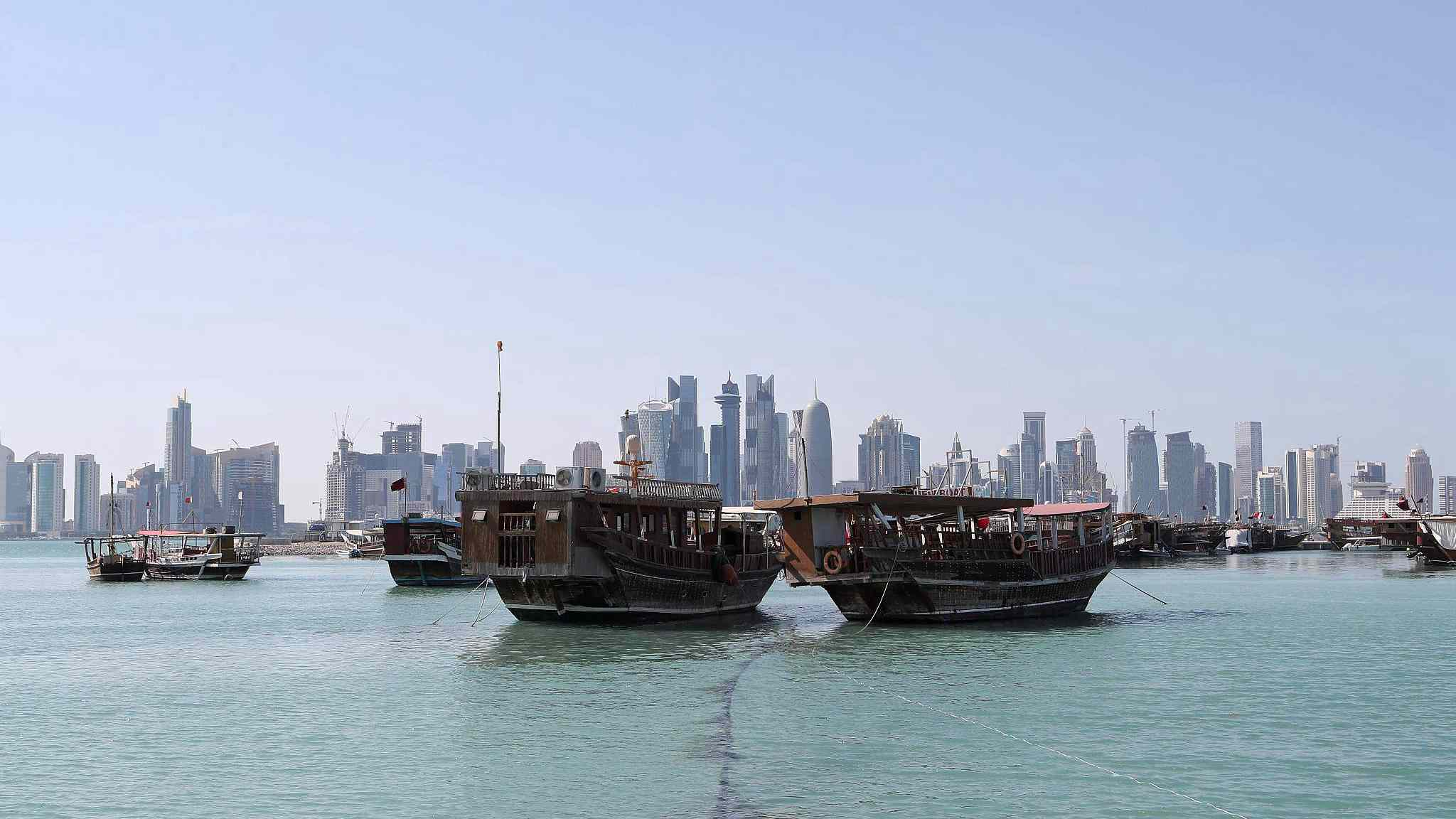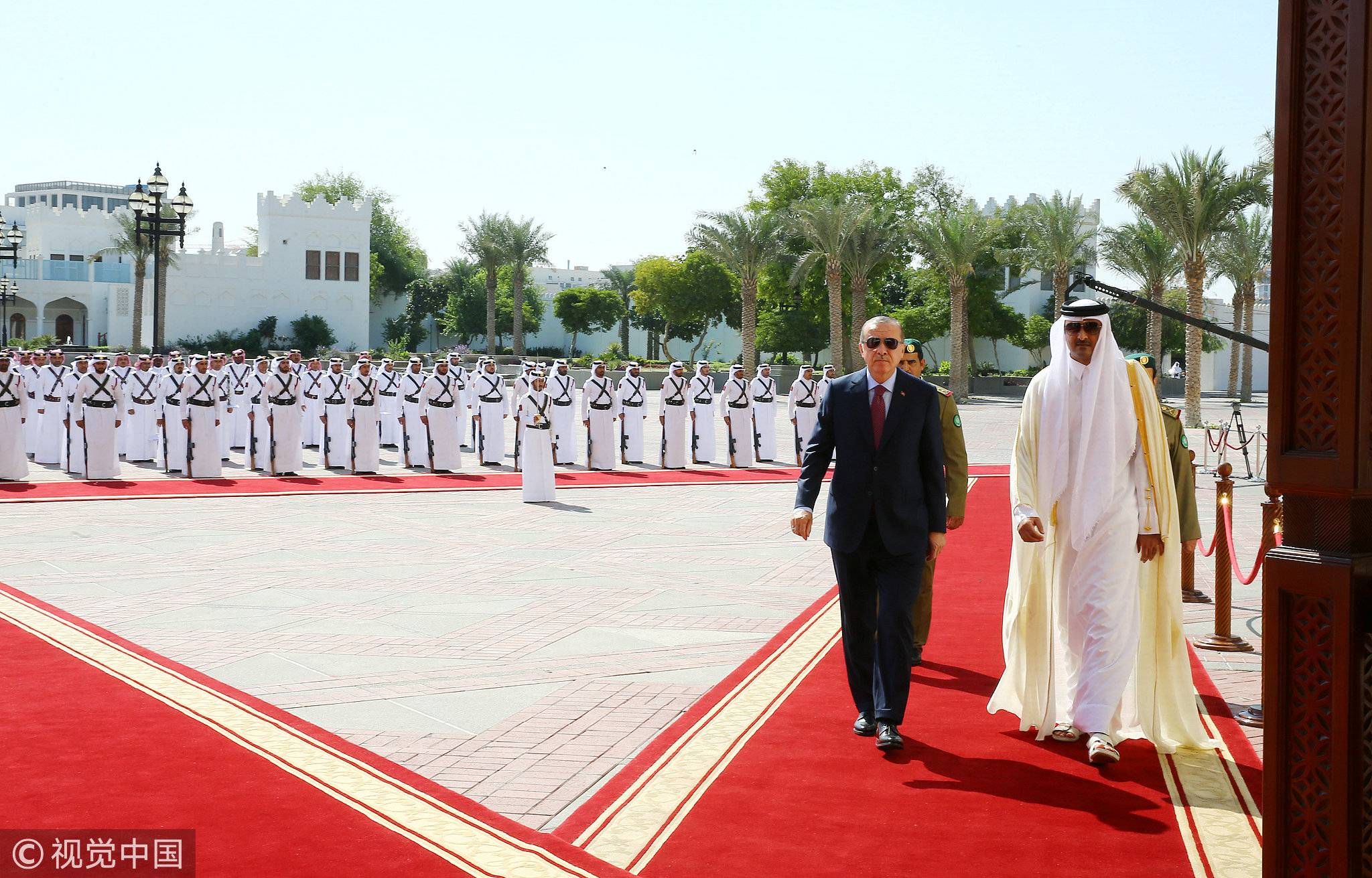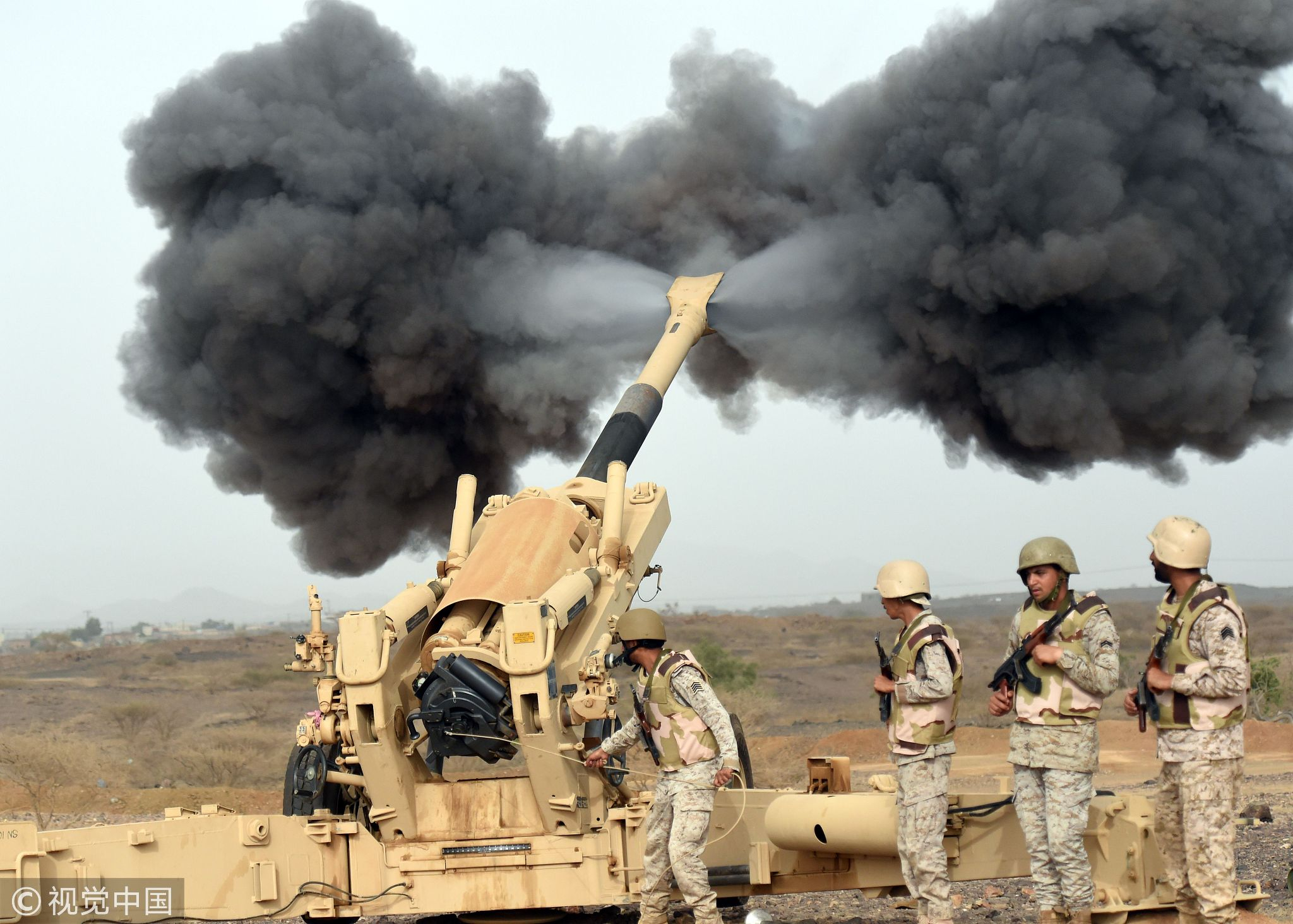
Opinions
23:07, 30-Nov-2018
Why Arabs' internal rifts will continue
Updated
22:43, 03-Dec-2018
Wang Jin

Editor's note: Wang Jin is a research fellow at the Charhar Institute and at the Northwest University of China. The article reflects the author's opinion, and not necessarily the views of CGTN.
Saudi Arabia and Egypt have announced that their ongoing blockade on Qatar will continue. The news came out following a meeting in Cairo between Egyptian President Abdel Fattah el-Sisi and Saudi Crown Prince Mohammed bin Salman.
In June last year, Saudi Arabia, Egypt, Bahrain and the United Arab Emirates (UAE) cut off ties with Qatar and imposed a blockade on the Gulf state. They accused Doha of supporting terrorism and opposing outlawed political movements, such as the Muslim Brotherhood. Qatar has repeatedly rejected the accusations as baseless.
The blockade of Qatar created a deep division among the Gulf Arab states, and significantly influenced the geopolitical landscape in the Middle East. Turkey and Qatar have promised to boost strategic cooperation in areas including transportation, trade, and culture.
Turkish President Recep Tayyip Erdogan has told Qatari Emir Sheikh Tamim bin Hamad Al-Thani that Turkey and Qatar are friends during "hard days." Meanwhile, Iran, which is perceived by Saudi Arabia and the UAE as the most pressing threat in the Middle East, has also become an important supporter of Qatar's daily necessities.

Turkey's President Recep Tayyip Erdogan (R) and Qatar's Emir Sheikh Tamim bin Hamad al-Thani attend a welcoming ceremony in Doha, Qatar, November 15, 2017. /VCG Photo
Turkey's President Recep Tayyip Erdogan (R) and Qatar's Emir Sheikh Tamim bin Hamad al-Thani attend a welcoming ceremony in Doha, Qatar, November 15, 2017. /VCG Photo
The blockade of Qatar could also be attributed to both Saudi Arabia's intention of unifying different Arab states to resist Iran's influence in the Middle East. During the past two decades, Iran's relative influence in the Middle East has been growing significantly.
Iraq was the major rival of Iran, and the threat from Iraq to Iran was pressing especially given the hatred resulted from the warfare history between the two states in the 1980s.
However, after the two Gulf wars in 1991 and 1998, especially after the U.S. terminated Saddam Hussein's control in 2003, Iraq's regional influence significantly decreased. Egypt was another regional Arab power, while the Arab Spring in 2011 weakened Egypt's influence and Cairo had to concentrate on the economic and social difficulties at home.
Without Egypt and Iraq, Saudi Arabia became the only regional Arab power in the Middle East. Saudi Arabia's influence in the Middle East has been obvious over the past half-century given its economic capability.
In the 1960s, it was Saudi Arabia's intervention in Yemen that constrained the expansion of Egypt under Gamal Abdel Nasser in the Arab Peninsula, and it was Saudi Arabia's leadership of decreasing oil production in 1973 that forced many European states to provide more support to Palestinians.

A Saudi army artillery fires shells towards Yemen from a post close to the Saudi-Yemeni border, in southwest Saudi Arabia, on April 13, 2015. /VCG Photo
A Saudi army artillery fires shells towards Yemen from a post close to the Saudi-Yemeni border, in southwest Saudi Arabia, on April 13, 2015. /VCG Photo
However, Saudi Arabia lacks hard power, especially military capability, to directly realize its geopolitical ambition. Saudi Arabia's hard power weakness was highlighted by its intervention in Yemen's civil war in 2015, which finally led to a battlefield stalemate.
Therefore, Saudi Arabia needs to unite all the Arab states, especially its neighboring Gulf Arab states, to resist the regional expansion of Iran.
Against this backdrop, the rift between Qatar and other Arab states becomes salient. The decisions of Saudi Arabia, United Arab Emirates, Bahrain and Egypt to boycott Qatar last June was not the first time that Qatar was embroiled in a diplomatic imbroglio with its Gulf Arab neighbors.
The salience of the ongoing division between Saudi Arabia and Qatar is different from the previous diplomatic crises between Gulf Arab states. Saudi Arabia, the UAE and Bahrain withdrew their ambassadors from Doha in 2014 to protest Qatar giving refuge for the Muslim Brotherhood, a Muslim network that is defined by many Arab states as a "terrorist group."
The ongoing division between Qatar and other Gulf Arab states could be understood as a struggle between Qatar's intention for autonomy and Saudi Arabia's dominance in the region. Qatar is suspicious of other Gulf Arab states' intentions, especially those of Saudi Arabia, UAE and Bahrain, and worried its neighbors, especially Saudi Arabia, might direct the internal policy of Qatar. With its rich oil and gas resources and its geopolitical importance, Qatar harbors the ambition to exert more influence in the Middle East. While Saudi Arabia hopes all Arab states could unite together to form a coalition against Iran, Qatar is more interested in maintaining its neutral stance over the Saudi-Iran, or Sunni-Shia competition in the Middle East.
Qatar's determination to strengthen its national security and foreign policy autonomy in the Gulf region will continue fueling its competition with Riyadh, and the blockade launched by Saudi Arabia, Egypt, UAE and Bahrain against Qatar will surely continue.
(If you want to contribute and have specific expertise, please contact us at opinions@cgtn.com)

SITEMAP
Copyright © 2018 CGTN. Beijing ICP prepared NO.16065310-3
Copyright © 2018 CGTN. Beijing ICP prepared NO.16065310-3